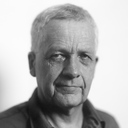4 Likes
Feeling a strong connection to her roots in the salt fields of the Otani area, the artist chose an old nursery school that overlooks the Sotoura coast as the location for her work. Suzu’s Agehama-style salt production, the only longstanding one of its kind in Japan, has been on the verge of disappearing several times. Red strings stretch from a sand boat that transported the high-quality sand to the fields, extending throughout the venue and spinning a history of the people who preserved and passed on the art of salt-making to the present.
Chiharu Shiota
Born in Osaka in 1972. Resides and works in Berlin.
Duration September 4th(Sat)-October 24th(Sun) 2021, 51 days
Feel the power of art at “the furthest edge of the world.”
Suzu City is located in the center of the Japanese archipelago, at the tip of the Noto Peninsula, jutting out into the Japan Sea. The natural beauty of its satoyama and satoumi has remained to this day. We are blessed with an abundance of good food, and above all, wondeful resident people.
The spread of the novel coronavirus had a major impact on society and economies worldwide, and it was inevitable that the Oku-Noto Triennale postpone for one year. We have been preparing for the Oku-Noto Triennale2020+ in hopes that it will be an opportunity to reconnect divided countries and people.





The eight islands of Japan sprang into existence through Divine Intervention.The first two gods who came into existence were Izanagi no Mikoto and Izanami no Mikoto, the Exalted Male and Exalted Female. It was their job to make the land for people to live on.They went to the bridge between heaven and earth and, using a jewel-encrusted halberd, Izanagi and Izanami churned up the sea into a frothy foam. As salty drips of water fell from the tip of the halberd the first island was formed. Its name was Onogoro.So far, so good. But when Izanagi and Izanami first met on their island, Izanami spoke to Isanagi without being spoken to first. Since she was the female, and this was improper, their first union created badly-formed offspring who were sent off into the sea in boats.The next time they met, Izanagi was sure to speak first, ensuring the proper rules were followed, and this time they produced eight children, which became the islands of Japan.I'm sure you did not fail to miss the significance of this myth for the establishment of Japanese formal society.At present, Japan is the financial capital of Asia. It has the second largest economy in the world and the largest metropolitan area (Tokyo.)Technically there are three thousand islands making up the Japanese archipelago. Izanagi and Izanami must have been busy little devils with their jewelled halberd...Japan's culture is highly technical and organized. Everything sparkles and swooshes on silent, miniaturized mechanisms.They're a world leader in robotics, and the Japanese have the longest life-expectancy on earth.Text by Steve Smith.